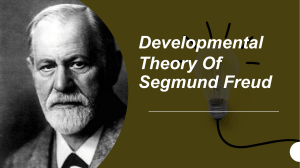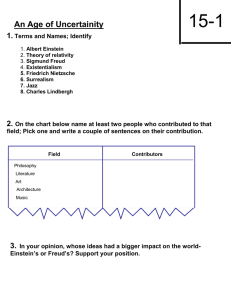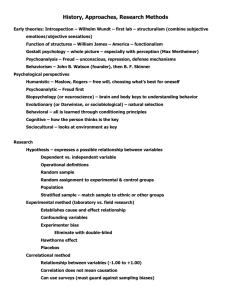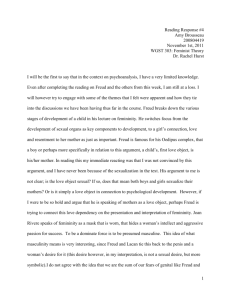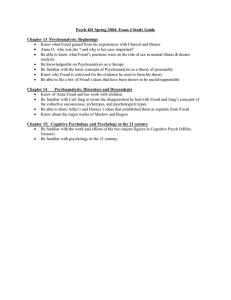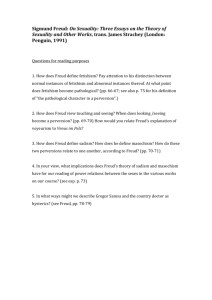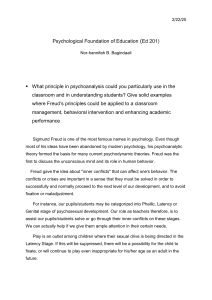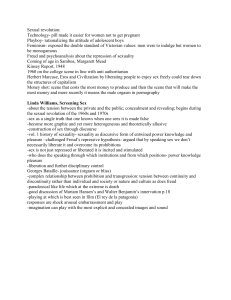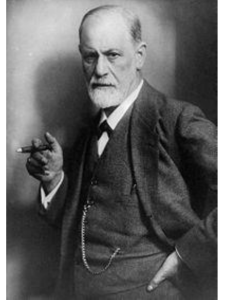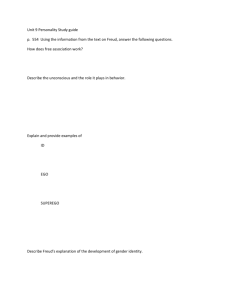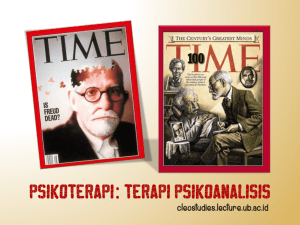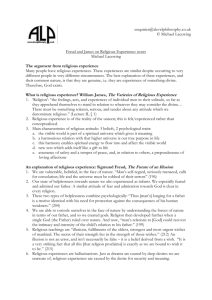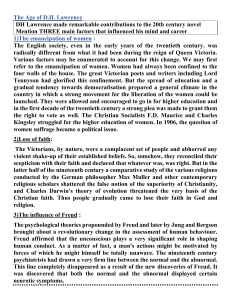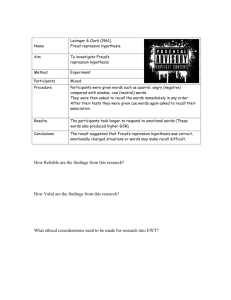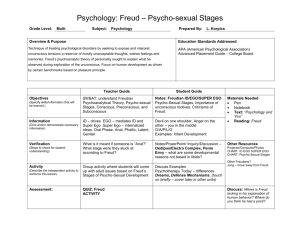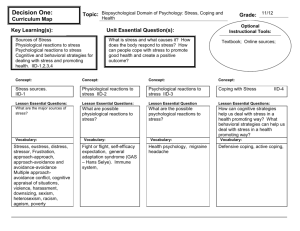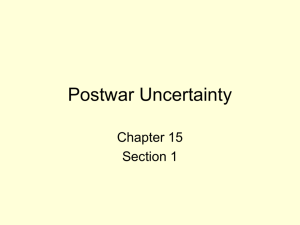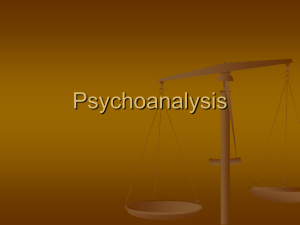LBCC Psycholgy 1 Exam 3 Study Guide
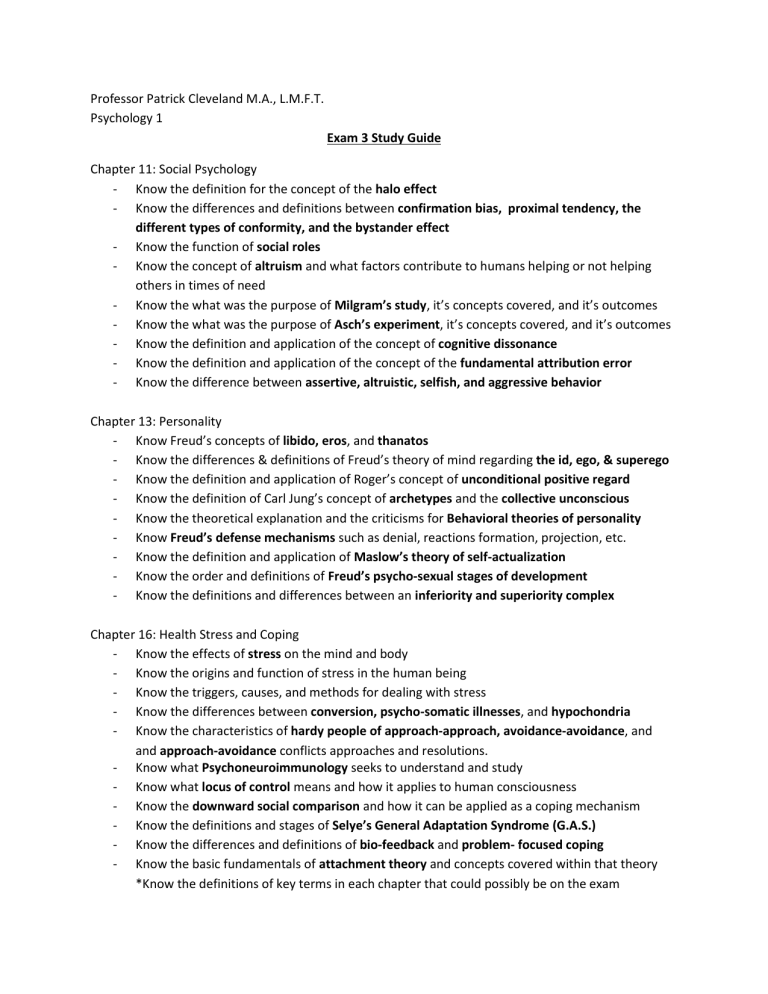
Professor Patrick Cleveland M.A., L.M.F.T.
Psychology 1
Exam 3 Study Guide
Chapter 11: Social Psychology
Know the definition for the concept of the halo effect
Know the differences and definitions between confirmation bias, proximal tendency, the different types of conformity, and the bystander effect
Know the function of social roles
Know the concept of altruism and what factors contribute to humans helping or not helping others in times of need
Know the what was the purpose of Milgram’s study, it’s concepts covered, and it’s outcomes
Know the what was the purpose of Asch’s experiment, it’s concepts covered, and it’s outcomes
Know the definition and application of the concept of cognitive dissonance
Know the definition and application of the concept of the fundamental attribution error
Know the difference between assertive, altruistic, selfish, and aggressive behavior
Chapter 13: Personality
Know Freud’s concepts of libido, eros, and thanatos
Know the differences & definitions of Freud’s theory of mind regarding the id, ego, & superego
Know the definition and application of Roger’s concept of unconditional positive regard
Know the definition of Carl Jung’s concept of archetypes and the collective unconscious
Know the theoretical explanation and the criticisms for Behavioral theories of personality
Know Freud’s defense mechanisms such as denial, reactions formation, projection, etc.
Know the definition and application of Maslow’s theory of self-actualization
Know the order and definitions of Freud’s psycho-sexual stages of development
Know the definitions and differences between an inferiority and superiority complex
Chapter 16: Health Stress and Coping
Know the effects of stress on the mind and body
Know the origins and function of stress in the human being
Know the triggers, causes, and methods for dealing with stress
Know the differences between conversion, psycho-somatic illnesses, and hypochondria
Know the characteristics of hardy people of approach-approach, avoidance-avoidance, and and approach-avoidance conflicts approaches and resolutions.
Know what Psychoneuroimmunology seeks to understand and study
Know what locus of control means and how it applies to human consciousness
Know the downward social comparison and how it can be applied as a coping mechanism
Know the definitions and stages of Selye’s General Adaptation Syndrome (G.A.S.)
Know the differences and definitions of bio-feedback and problem- focused coping
Know the basic fundamentals of attachment theory and concepts covered within that theory
*Know the definitions of key terms in each chapter that could possibly be on the exam
